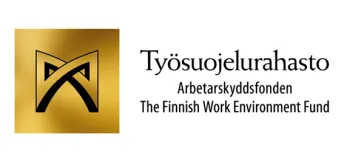The impact of night shift work on women’s breast cancer and reproductive health
The project aims to examine how night shift work and post-shift recovery times are linked to the risk of women's breast cancer and the maternal health risks. We will also explore the current practices of occupational health care services and maternity clinics in Finland regarding the exemption from night work for women diagnosed with breast cancer and pregnant women. We will develop recommendations on how to consider breast cancer and pregnancy when planning shifts.

Objectives
Social and health care sector is the largest female-dominated sector in Finland that requires shift work. The sector faces a labour shortage and a growing demand for workers as the population ages. However, shift work poses health and psychosocial challenges that make the field less appealing. These challenges can be mitigated by proper shift planning that supports the health and safety of workers and the attractiveness of the sector.
The project’s main goal is to create recommendations based on dose-response relationships between night shift work and the risk of miscarriage, preterm birth, and breast cancer among women. The recommendations will help the social and health care sector to organise night work in a way that minimises harm to workers’ health. Earlier Scandinavian research on the area will be utilized in the preparation of the recommendations.
The project has four specific objectives:
- To identify the existing practices and collaboration models of maternity clinics, occupational health services and other organisations regarding exemption from night shifts.
- To examine how night shift work and recovery affect women's risks of breast cancer, miscarriage and preterm birth.
- To investigate how work stress, insomnia and shift work interact to influence the risk of breast cancer, miscarriage and preterm birth.
- To assess how working hours and sickness absence vary according to pregnancy and breast cancer diagnosis.
Data and methods
We will use the Working Hours in the Finnish Public Sector (WHFPS) database, which is derived from the work schedule data of the employers' shift planning software Titania (CGI Finland). We will merge the WHFPS database with the survey data from the Finnish Public Sector study (FPS) and data in national registers on pregnancy and breast cancer incidence using Findata.
The WHFPS database has the working hours data of approximately 100,000 women who worked in the social and health care sector from 2008 to 2021. The oldest group, which began in 2008, has about 25,000 women, allowing for up to 14 years of follow-up.
Besides scientific research, we will conduct interviews to examine the practices that guide doctors related to night work exemptions, and the practices different organisations have when making decisions regarding these exemptions. Based on the interviews, we will create a view of the current situation, current cooperation practices, and possible need for change in granting exemptions from night work.
Results and impact
The project will generate new knowledge on how women's night shift work is associated with breast cancer and the risks during pregnancy. Additionally, we will develop and implement research-based recommendations.
Legislation and international recommendations require that night shifts should be avoided during pregnancy and after breast cancer. However, we do not know how these recommendations can be complied with as there is currently a labour shortage in the Finnish care sector. Our research will provide detailed information on the existing practices and enable the planning of new recommendations and practices in collaboration with various parties.

Päivi Vanttola
Research group
Jenni Ervasti, lead researcher
Mikko Härmä, research professor
Aki Koskinen, senior specialist
Rahman Shiri, lead researcher
In cooperation with
Dr Johnny Hansen (Danish Cancer Society, Denmark)
Organisations provisionally agreed to be interviewed:
- City of Helsinki Social Services, Health Care and Rescue Services Division
- HUS Group
- Mehiläinen Oy
- Wellbeing services county of Vantaa and Kerava
Funding
The Finnish Work Environment Fund and Finnish Institute of Occupational Health






